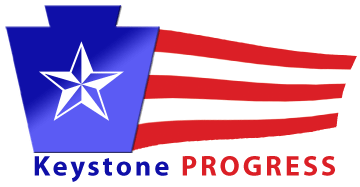HARRISBURG,PA (February 7, 2012) – Today, the Governor outlined his funding priorities in his 2012-2013 budget speech. In this proposal, the Governor continues to reduce funding to public education. For basic education, Corbett carries forward last year’s drastic $900 million cut and then proposes combining four separate lines items into a single line. Unfortunately the total funding of what these four items would have added up to if they were not combined means basic education will receive an additional cut, a cut local school districts cannot handle. In addition, PASSHE schools will receive a 20% cut, state-related schools will receive a 30% cut and Pre-K Counts and Head Start will each get a 5% cut.
“There was one right thing to do for public education in this year’s budget and that was to restore the funds that were cut from our students and our communities last year and it didn’t happen. They said we were forced to make cuts last year because of tough times – if that were true, we would be getting back on track with both the funding formula and funding levels this year. The cuts to early education are disturbing and the cuts to higher education are shocking. This is ideological. I really have to question a Governor’s priorities if he isn’t willing to take care of children and provide an opportunity for them to learn, as well as think long term and help prepare our workforce for tomorrow, “ said Susan Gobreski, Executive Director of Education Voters of Pennsylvania.
Last year, the Governor proposed and passed a historic cut to education funding of about $900 million dollars, which is carried forward in this year’s budget. Class size went up in almost every community, and important programs that affect student achievement were cut, like Kindergarten, early education, arts, science, and technology. Pennsylvania had been showing steady gains in academic achievement, and the districts that had been historically the most underfunded showed the greatest gains, demonstrating the impact of targeted increases and investments in programs that produce outcomes. Gobreski said, “That is the funny thing about education, it’s really as simple as giving our students a quality opportunity – when we provide it, they learn.”
Legislators from both parties, as well as community, business and civic leaders, have been calling for the state budget to restore funding or, at minimum, stop cutting the support for education. Many legislators are scrambling to position themselves as a friend of public education, given the trend. With state cuts being so drastic, many communities have been forced to cut programs, increase class sizes or raise local taxes, the worst way to fund education. For the last couple of decades, communities have had to take care of what the state has sloughed off, which is a neat political trick for state elected officials, but communities are tired of having their local economies being played.
The Governor’s political spin has been that this is the fault of the temporary stimulus money, but in reality, the stimulus money was supposed to be used to help prevent harmful state cuts during the worst of the downturn– they paid our bills and: “After that money was gone, the Commonwealth was supposed to resume their role in properly funding the state basic education formula.” Gobreski said, “The political tricks and fuzzy math abound: they reduce overall spending, combined several line items into one and called it an increase, knowing that the average person isn’t going to read the line by line version of the budget. It would be like doing this to your kids; last week your allowance was $10, plus I gave you $8 for lunch money and then $2 for your scout dues. But from now on, instead, I am going to give you $15 in allowance (total) as your money for the week. There, I increased your allowance. Aren’t you happy?”
Education Voters is a non-partisan non-profit advocacy organization that works with parents and community leaders throughout the Commonwealth, engaging voters in advocating for strong public education policy.

No comments:
Post a Comment